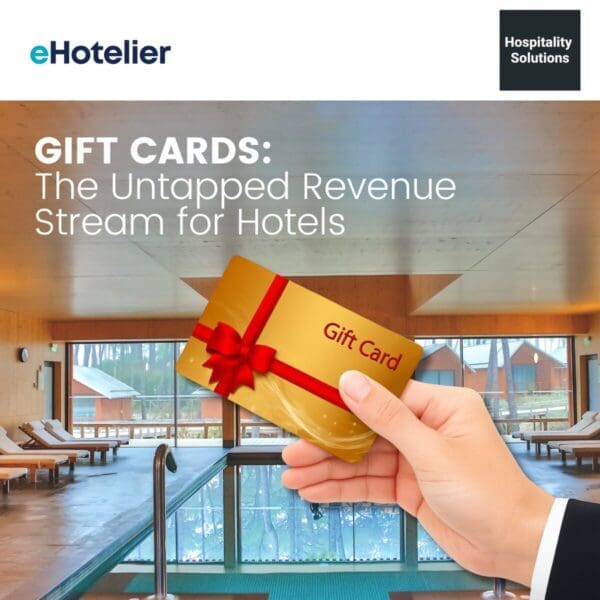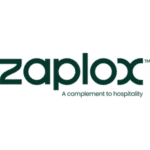 Has any industry had a more inconvenient pandemic than the tourism industry? Where other businesses’ main issue has been how to manage a remote team, in the early days of March 2020, it felt as though the holiday lights were turned off almost overnight. Across the world, airlines, travel agencies, and local hospitality had their customers taken away from them.
Has any industry had a more inconvenient pandemic than the tourism industry? Where other businesses’ main issue has been how to manage a remote team, in the early days of March 2020, it felt as though the holiday lights were turned off almost overnight. Across the world, airlines, travel agencies, and local hospitality had their customers taken away from them.
It was a shock to the system that, in truth, is going to take years to recover from. And, in a lot of places, it still doesn’t look like getting better any time soon. This doesn’t have to mean complete doom and gloom, however. Businesses like hotels have had to be more reactive to market trends in recent years.
The emergence of sites such as Airbnb giving travellers much more power to scrutinise the value proposition of traditional accommodation, and have seen many places introduce more robust revenue strategies.
Out of these changes, as is often the case, opportunities still arise. If you’re one of the hotels which fall on the right side of this dilemma, in terms of the value for money that you offer, or the experiences that you can provide, then you’re likely to perform better than ever before. One of the best ways to move towards this success is to create a USP. This article will take you through how to do this.
What Is a USP?
Before we get into the “how”, we need to make sure that the “what” is understood. There’s no point in discussing how to achieve a goal if the goal itself, and the merits it can have, is something that nobody understands.
So, quite simply, USP stands for Unique Selling Point. It is a term that has been in circulation in business models for decades. It refers to the unique factor (or factors) of your business that, when best utilised, can deliver a competitive advantage to your business.
The most obvious reward for this, or indicator that it is succeeding, is an uptick in revenue. In an era where cash is no longer king, point of sale software, for example, has proven great for retailers like market traders. It can also improve sign-ups to mailing lists, subscribers to a particular site, or engagements on social media, depending on the type of improvements you are looking to make.
Now we know what a USP is, let’s look at some tips on how to create the most effective one for your hotel.
Core Factors
Approaching how to create a USP and understanding its foundations is often a good place to start. The hotel that you’re creating a USP for was built in the same way, so how you advertise it needs solid basics which allow you to be creative on top.
The core factors of a USP of a hotel revolve around three crucial elements. Location, comfort, and value. And whilst the “ideal” nature of any of these elements is down to customer perception – some people will always want you to be closer to the beach for example – there’s a standard that any hotel should aspire to across all three factors.
It’s also true to say that very few hotels can be unique in all three ways. A lot of it, certainly when it comes to location, is about luck. So, whilst being perfect in all three of these ways is virtually impossible, being unique in at least one way and good enough in the other two is the benchmark for a good USP, and also makes reputation management a lot easier.
When looking at location, consider transport links, or unique areas that the hotel has on its doorstep. Are you surrounded by great shopping facilities? Or on the path of a good country walk?
If you’re looking to focus more on comfort, consider the finishes of the hotel. Are your beds comfortable? Do your bar and restaurant have an inviting atmosphere? Are any issues guests have dealt with efficiently by staff that have been onboarded and to their satisfaction?
And if value is your primary factor, don’t fall into the trap of just being the cheapest stay in your immediate area, as that too can turn a certain client off.
So, if you are charging more than your immediate competitors, make sure you can justify it. Whether this is through nicer rooms, better food, or a voucher for a local tourist attraction, these little touches can elevate the experience that you offer to your guests.
Competitive Advantage
As we’ve discussed above, a USP is about singling out a couple of things that you, as a hotel, are great at. The scale of this greatness is often judged by a prospective customer against hotels that offer something similar – location-wise, price-wise, luxury-wise.
This element of comparison needn’t be purely reactive. You can use this in a proactive sense as well. Do some research into your competitors who offer a similar experience to you and see how you compare. Decipher the needs that they meet for their customers and identify how you perform with these criteria.
If you believe you’re already a cut above them on these lines, maybe you offer a free conference line for business stays or a better breakfast for holidaymakers, then use this in your promotional material. If this research identifies areas that you can improve, put these improvements in place, and then centre your advertising around these new features.
Target Audience
As well as analysing your competitors, you have to also analyse your target audience. It should go without saying, as these are the people who are going to potentially be spending money with you. The reality is, though, far too many businesses, when formulating a USP, somehow omit this crucial element.
More often than not, this is because hotels want to, instinctively, appeal to as wide a range of people as possible. After the eighteen months we’re all currently emerging from, who can honestly blame them?
In many ways, though, a more thorough understanding of your target audience, and a marketing campaign that reflects this, can prove more lucrative for a business. Why have 10% of everyone, when you can have 80% of a complete demographic?
Not only does this build a reputation for you as the go-to stay for this group of people, but it is more likely to earn you repeat business. People will know that they can get their ideal holiday with you, something that may not be guaranteed elsewhere.
The best way to perform this is to run quick surveys with existing guests or get the customers to write reviews. Make these about why they chose to stay with you and what they would improve about the experience.
If you can build a data set around this, which includes some demographics and a few pieces of information about their interests, it can help in understanding what people think you are offering, and whether you need to change this or tailor your hotel more to this type of audience. Using customer experience management software can streamline this if you’re working in a large hotel.
Communication
The process of building awareness of your USP is as important as the USP itself. After all, you can be the most tailor-made stay for a certain group of tourists, but if nobody knows about it, you’re unlikely to see any upticks in fortune.
So, deciding how best to get your message out there is a consideration that you shouldn’t overlook. In an era where the formats of media are as diverse as the number of audiences you could choose to appeal to, it can be the difference between unlocking a goldmine and fading into obscurity.
More traditional advertising methods – billboards, radio, television – would best suit a hotel that is looking to appeal to an older clientele. If you offer experiences that speak to a certain pastime – a sport like golf, for example – look to run these adverts during golf tournaments.
Alternatively, if you’re looking to speak to a younger audience, influencer marketing, or using a screen sharing app on which you can have virtual tours of the hotel, could prove more lucrative, as that is where the majority of that audience hears about getaway experiences.
Test and Refine
Finally, in keeping with the fast-moving pace of the modern business world, it’s important to keep things up to date and changeable. In businesses that have customer service departments, contact center analytics really help here. The same method can be used for your hotel too.
After launching your USP, you should continue the analysis of how effective it is to track success.
Should you find that there are areas where the message isn’t getting through as planned, be confident in making changes.
You should be able if you’ve created a USP following the above guidance to tweak and refine elements of it over the short and long term. This not only identifies you as an understanding business but allows you to maintain the advantages that you have created for yourself with your competitive value analysis.
Conclusion
In this tumultuous time for business, as well as for everything else, finding advantages in your value proposition is more vital, yet more elusive than ever before. Whilst the basics may remain the same, how you create a USP has to continue to evolve with the times and the audience that you are aiming for.
With the tips in this article as your foundation, creating a USP for your hotel that is not only effective now but will continue to be so is more achievable. At a time when practically everyone is in search of a great getaway, capitalising on this with a tip-top USP could be the key to your future success.



















